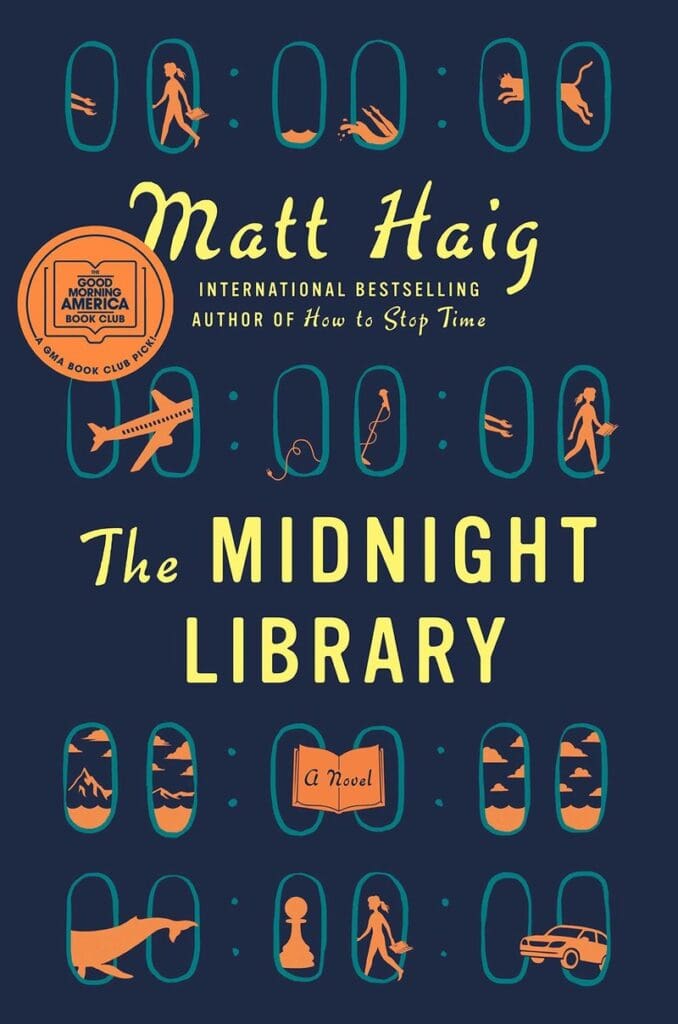There isn’t a single person who hasn’t asked themselves “what could have been.” Regret is as ubiquitous as air and we cannot help but dwell on hypotheticals and possibilities. In Matt Haig’s new novel, The Midnight Library (288 pages; Viking), the reader is invited into a world where regrets and missed chances—the parallel lives that exist should things have turned out differently—can be visited.
At the center of Haig’s story is Nora Seed, a woman inundated with remorse. With a dead-end job, a terminated engagement, and a plethora of family issues, Nora can’t seem to get anything right. When she attempts to take her own life, Nora is interrupted by a journey to the Midnight Library, a space between life and death where she is given the opportunity to explore her life in parallel worlds, each one the product of different choices.
Some of her alternate lives prove terrible: an unhappy marriage or the non-existence of someone she loves dearly. Other scenarios are warm and beautiful, full of love and joy. But as she grows more introspective and begins to understand her existence as one defined by choices, both good and bad, she learns that “maybe there are no easy paths. There are just paths.” As we follow Nora through her journey, Haig creates an insightful, magnificent universe that prompts questions about fate and the role of free will.
The Midnight Library offers a unique form of post-modernism in that it seeks an honest and desperate return to sincerity. It captures, with humor and a touch of irony, the themes of restlessness, disappointment, disaffection, and the constant desire to do things differently. But what seems like a dream come true—the chance to live every life you could have ever imagined—doesn’t really offer the catharsis Nora hopes for. Instead, there’s an opportunity for knowledge and self-reflection; the chance to discover “You don’t have to understand life. You just have to live it.”
Perhaps what is most fascinating about Nora’s travels through parallel worlds is that, despite the many lives she visits, she never chooses to remain in any of them. She spends time as a ticket salesperson in Australia, a vineyard owner in California, an Olympic swimmer, a rock star, a glaciologist, a philosopher, a wife, a mother, and so much more. She travels the world and sees things she never would have dreamed of before, but every time, something still prompts her to return to the Midnight Library. Each reality has its own brand of dissatisfaction, and Nora ultimately realizes that perfection is unobtainable; no life is free of regret and no life is free of mistakes.
As she navigates these new versions of herself, and witnesses the disappointments contained in each world, Nora recognizes that perhaps her original life was better than she had previously thought. And as she slowly realizes that life itself is precious, and worth living, we are given a glimpse into the triumphs of experience and growth, and the resilience of human spirit. Haig’s novel is a testament to human capacity and a philosophical meditation on what our choices say about us. With language that is compact yet elegant, Haig crafts a story about life, death, and everything in between, ultimately reminding us that “the game is never over until it’s over.”

